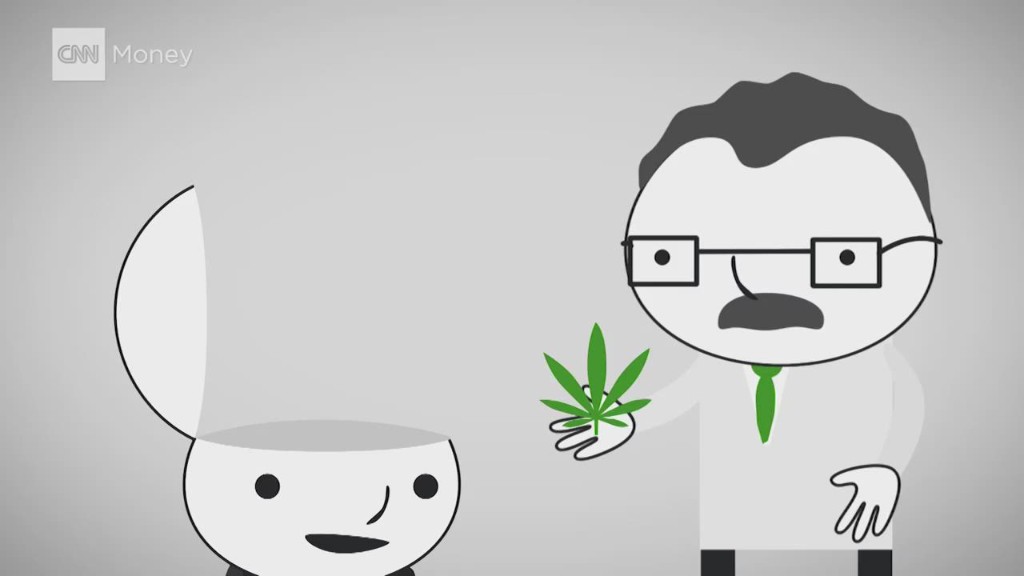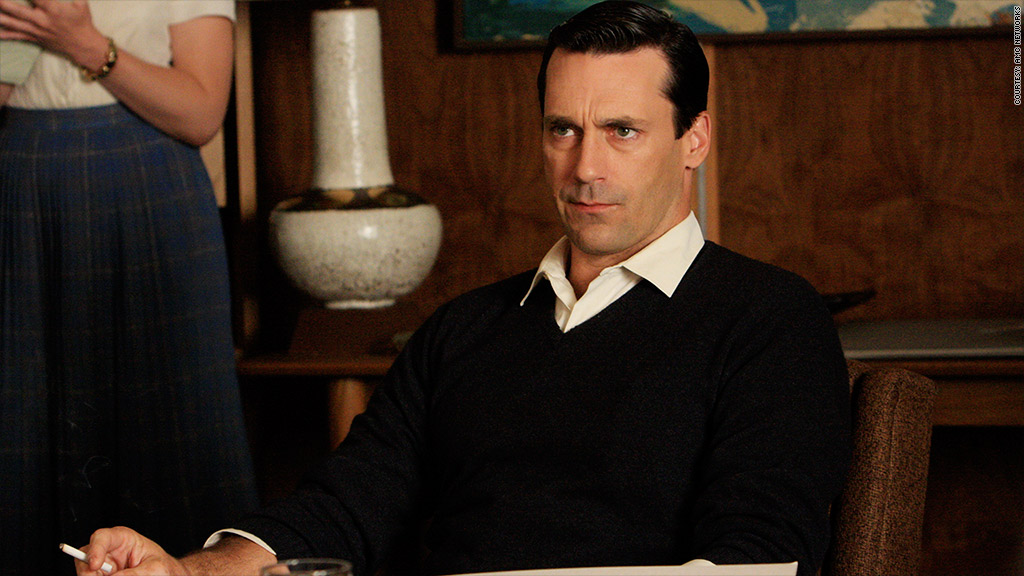
Don Draper might be finishing his last cocktail this spring on "Mad Men," but there's still plenty of men in high-end suits ordering drinks.
People with more education and higher socioeconomic status -- generally white men -- tend to drink more than others, according to a new study by the Organization of Economic Co-operation and Development, an international organization that studies global trends.
However, the study also finds that poor men and rich women are more likely to engage in "risky drinking." Cue Betty Draper having a lonely drink at a bar (with a poor man on the other end).
Excessive drinking isn't glamorous. The report detailed numerous economic and health effects of alcohol on workers and productivity. Alcohol's harmful impacts -- such as medical expenses and crime -- on an advanced economy can cost about 1% of a country's economic growth.

Last year the American economy grew by $650 billion (or 2.4%). Alcohol's negative impacts could have cost the U.S. economy $6.5 billion last year, based on the OECD's findings. That's more than Netflix (NFLX)'s sales for all of 2014.
Other studies cited by OECD have found the impact could be closer to 3.3% of economic growth, which would be $21 billion in the U.S.
Beer remains the most popular alcoholic beverage in the U.S., while wine tops the list in France, Italy and Portugal and spirits still dominate in Russia.
Related: Beer that's been to space and back
Some of the report's health findings are even more worrisome.
Young people under age 15 are drinking more. The number of girls under 15 who have been drunk rose from 26% to 41% between 2001 and 2010. For boys, the number went from 30% to 43%. A survey of U.S. high school seniors found that a fifth of them had reported binge drinking (defined as five drinks in the U.S.).
One of the most effective ways to curb excessive drinking is to raise the price of alcohol. The report suggests that countries increase taxes on alcohol or simply hike up alcohol prices as much as 10%. The U.S., in particular, has lower taxes on alcohol than many other industrialized nations, the report finds.
The reasoning is that more expensive alcohol would lead to less drinking and a healthier, and more productive, worker.
Advocates for the alcohol industry opposed the OECD's recommendations to raise taxes and prices. They say higher prices won't curb issues such as alcoholism.
"Numerous studies, including [National Institute on Alcohol Abuse and Alcoholism] funded research, show that raising the price does not deter heavy alcohol abusers," the U.S. Distilled Spirits Council released in a statement.
The council recommends more law enforcement on underage drinking, alcohol education and interventions for those with drinking problems.


